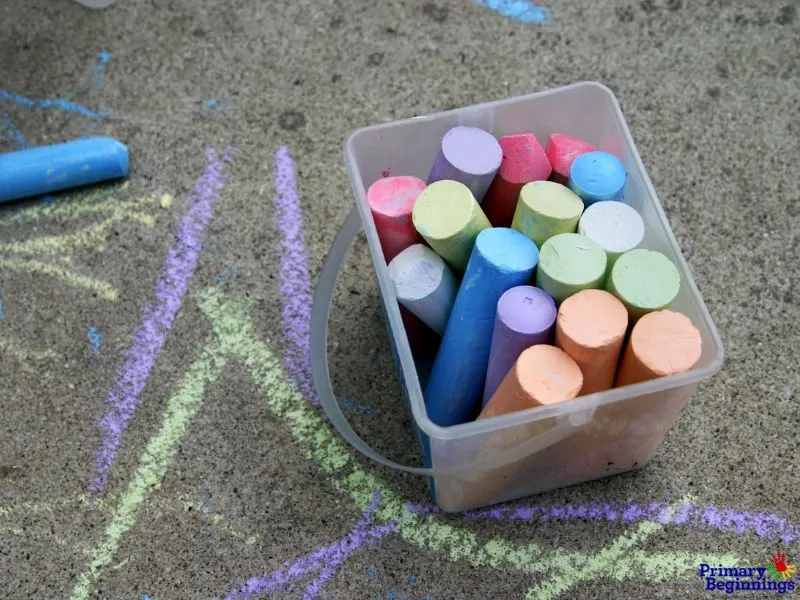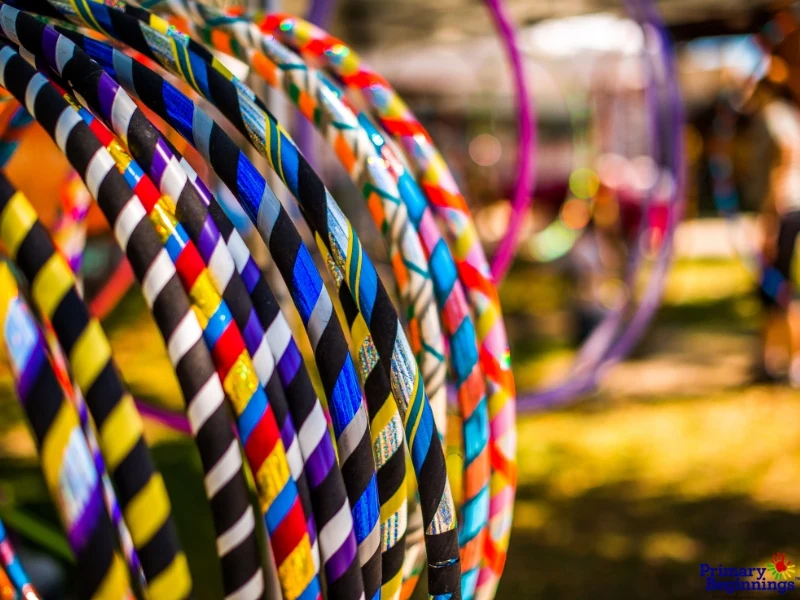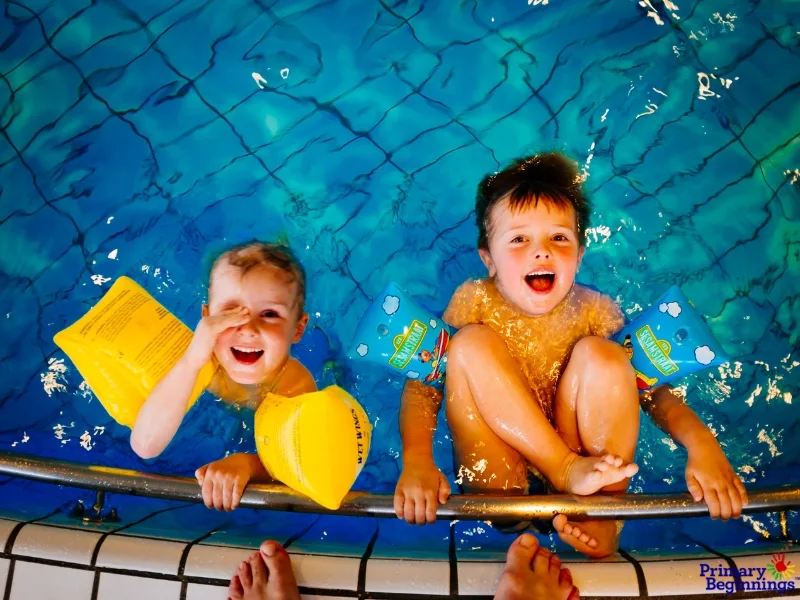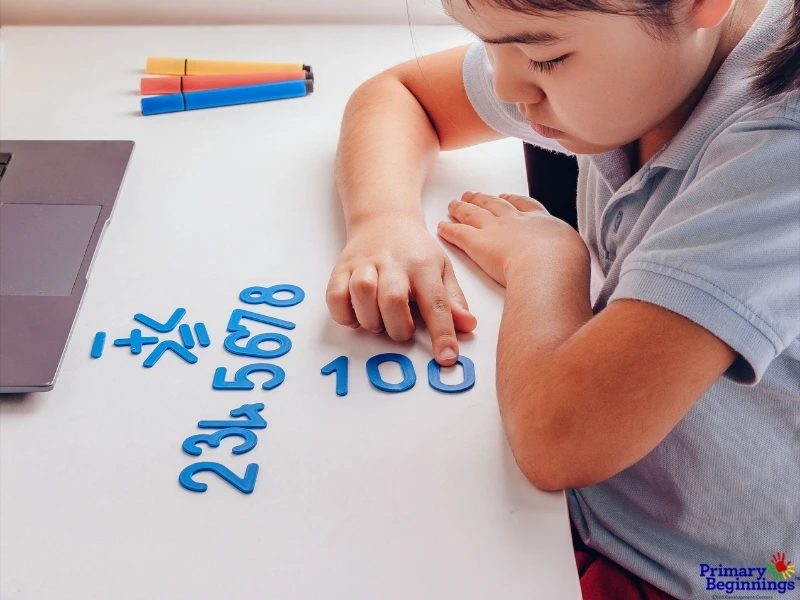Summer is a fun time to spend with your preschooler, playing outside and exploring new…
Throughout the summer, math is absolutely the last thing on a child’s mind. Instead, watching their favorite TV show, playing with a new toy, or literally, any other activity takes precedence over learning math skills. However, keeping your child’s math skills sharp during the summer months can set them up for success in the next school year.
Join our team of early childhood educators from Primary Beginnings, a 5-star Raleigh preschool, as we explore fun outdoor math games to sharpen your young learners' math skills over the summer.
Table of Contents
Why Engage Children in Outdoor Math Games?
Summer is an excellent opportunity to keep younger students in preschool, elementary school, and 5th grade engaged while also reinforcing their learning. Using outdoor games to teach math breaks from traditional classroom settings while offering a unique way for children to practice abstract concepts within the natural world.
Outdoor Math Games
Many great outdoor math games incorporating math provide a fantastic way for kids to stay active with physically engaging tasks while practicing essential number skills. They combine physical activity with problem-solving, making math feel less like a lesson and more like a fun challenge.

The Number Line Game
In this game, children run along a number line drawn with sidewalk chalk on the ground, practicing counting and basic math operations. For younger children, the focus can be on counting numbers, while older kids can solve math problems like addition, subtraction, or multiplication at each number they land on. This game can be easily adjusted to suit different skill levels, making it fun and educational for all ages.
Beach Ball Facts
Using a beach ball, write math equations and throw it to a child. Whichever equation their right hand touches, they need to solve quickly. This can be done outside, by the pool, or in any open space, making it both active and educational.
Hula Hoop Multiplication
Incorporating physical activity with multiplication tables, kids hula hoop while solving math problems pulled from a container. This activity encourages speed and accuracy, with the added challenge of staying active.

Summer Math Games
Summer is the perfect time to incorporate math into fun, outdoor activities. These outdoor math games are designed to keep kids engaged while enjoying the sunny weather and spending time outside.
Shape and Color Sorting
Create a collection of colorful, paper geometric shapes and hide them outside. Have children work together in two teams to sort the objects by color or shape. This introduces them to early geometry concepts and reinforces their understanding of various shapes and colors.

Splash Math Challenge
Children must answer a math question correctly before they can swim to a designated spot in the pool. This game can introduce different challenges like having them swim a certain number of laps for each correct answer or incorporate time limits to make it more competitive. This game combines water fun with math practice, making learning both refreshing and active.
Math Hopscotch
Draw a large hopscotch grid and incorporate math problems into the squares. Kids can hop to the correct answer, or solve the equation in the square they land on. This is a great way to mix physical activity with basic math practice.
Outdoor Math Activities for Preschoolers
Preschoolers may not be ready for complex math, but outdoor activities can be a wonderful way to introduce them to early math concepts while allowing them to socialize and work in groups. These activities are perfect for engaging multiple toddlers at once while helping them learn.
Math Treasure Hunt
Hide small objects like toy coins or colorful beads around the yard, then have children count how many items they find. You can give each child a specific number to find, helping them practice number recognition and counting while working together as a team.
Math Obstacle Course
Set up an outdoor obstacle course that incorporates math challenges at each station. For example, kids could crawl under a rope, then solve a math problem before moving to the next challenge. As they complete each task, they practice math skills while staying active.
Math Relay Race
Set up a relay race where kids work in teams to solve math problems at different stations. For example, one station might require them to solve an addition problem, while another could have them count objects or measure distances. Each child on the team runs to a station, solves the problem, and then tags the next teammate. This activity encourages teamwork, quick thinking, and physical activity while practicing math in a fun, dynamic way.

Encouraging Kids to Enjoy Math Outside
Math doesn’t have to be confined to the classroom or a worksheet. Summer provides a wonderful opportunity to introduce kids to the world of outdoor math through fun, interactive play.
Here are some simple ways to make math exciting and enjoyable for kids this summer:
- Make it a Game: Turn math exercises into fun challenges or friendly competitions. The more you incorporate play into math activities, the more kids will associate learning with enjoyment.
- Incorporate Nature: Use natural elements like rocks, leaves, or flowers to teach counting, measurement, or patterns. For example, you can count leaves on a tree, measure the length of sticks, or create shapes using natural objects.
- Keep it Social: Encourage group math games that involve teamwork and communication. Preschoolers or younger children will enjoy working together to solve problems and can learn from each other.
- Use Everyday Items: Use toys, sports equipment, or kitchen items to create math problems. For example, you can ask kids to calculate the number of soccer balls in a box or the amount of water in a bottle using basic math.
- Create a Routine: Make outdoor math practice part of your daily or weekly routine. Whether it's solving a math problem before heading to the park or counting steps as you walk, the more consistent the practice, the easier it will be for kids to integrate math into their day.
- Be Enthusiastic: Show excitement and a positive attitude about math. When kids see that you enjoy the activity, they are more likely to mirror that enthusiasm and find fun in learning too.
- Reward Effort, Not Just Accuracy: Celebrate the effort and creativity kids put into math activities, even if they don’t always get the answer right. This encourages them to take risks and not be afraid of making mistakes.
Contact Primary Beginnings to Enhance Your Child’s Development
At Primary Beginnings, we are dedicated to nurturing your child’s development through a well-rounded curriculum that includes math, literacy, and other essential skills. If you're looking to sharpen and enhance your child’s developmental skills, contact us today to learn more about our early childhood programs. We have three convenient North Raleigh preschool and early childhood development centers, each with before and after school care.
Get started now by calling us at 919-790-6888 or filling out our contact form below.
